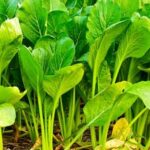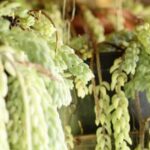Mulching is an essential practice in vegetable gardening that offers numerous benefits. From retaining moisture to preventing weed growth, mulch plays a crucial role in maintaining healthy and thriving plants. However, not all mulches are created equal, with each type providing unique advantages and disadvantages. In this article, we will delve into the specific benefits and considerations of using black mulch in vegetable gardens.
When it comes to mulching, black mulch stands out as an excellent option for vegetable gardens. This type of mulch functions much more than just adding aesthetic appeal to your garden beds. Its properties make it advantageous for enhancing plant growth and productivity. Black mulch works by creating a protective barrier on the soil’s surface, conserving moisture and preventing evaporation, which is especially beneficial during dry periods or in arid climates.
Additionally, black mulch acts as a natural weed suppressor by blocking sunlight from reaching the underlying soil. This inhibits weed germination and growth, reducing competition with your beloved vegetables for vital nutrients and water. Furthermore, black mulch contributes to maintaining optimal soil temperature levels throughout the growing season by insulating the soil against extreme heat or cold temperatures.
In the following sections, we will explore what exactly black mulch is and how it differs from other types of commonly used garden mulches. We will also discuss its pros and cons, provide guidance on applying it correctly in vegetable gardens, highlight the vegetables that benefit most from its use, offer tips to maximize its benefits, assist in choosing the right type for your specific needs, and summarize our key findings at the end.
By understanding these aspects of black mulch gardening practices, you can harness its full potential and achieve bountiful harvests in your vegetable garden.
What is black mulch?
Black mulch is a type of mulch that is commonly used in gardens, including vegetable gardens, for its many benefits. It is made by using black dye or pigment on various organic materials, such as hay, straw, or wood chips. The black color helps absorb sunlight and heat, which can be beneficial for plants in cooler climates or during the early stages of growth.
One key difference between black mulch and other types of mulch is its ability to regulate soil temperature. The dark color of black mulch absorbs more sunlight and heat compared to lighter colored mulches. This can help warm up the soil faster in the spring, allowing for earlier planting and germination. It can also help retain soil warmth during colder nights.
In addition to regulating soil temperature, black mulch also helps retain moisture in the soil. By forming a protective barrier over the topsoil, it reduces evaporation and prevents water from being lost to the air. This can be especially beneficial in hot and dry climates where water conservation is important.
Another advantage of using black mulch in vegetable gardens is its ability to suppress weed growth. The dense layer created by the mulch blocks sunlight from reaching weed seeds that may be present in the soil. As a result, fewer weeds are able to germinate and compete with vegetable plants for nutrients and space.
Overall, black mulch offers unique benefits compared to other types of mulches commonly used in gardens. Its ability to regulate soil temperature, retain moisture, and prevent weed growth makes it an excellent choice for vegetable gardeners looking to optimize their growing conditions.
Table: Comparison of Different Types of Mulch
| Mulch Type | Main Benefits | Main Drawbacks |
|---|---|---|
| Black Mulch | – Regulates soil temperature
| – Impact on beneficial insects
|
| Straw Mulch | – Insulates soil
| – Attracts pests like slugs and snails
|
| Wood Chip Mulch | – Retains moisture
| – Can tie up nitrogen in the soil during decomposition
|
Pros of using black mulch in vegetable gardens
Black mulch offers several advantages when used in vegetable gardens, making it a popular choice among gardeners. One of the main benefits of using black mulch is its ability to retain moisture in the soil. The dark color of black mulch absorbs and retains heat from the sun, which helps to keep the soil warm and moist for longer periods of time. This can be especially beneficial during dry spells or in hot climates where water conservation is important.
Another advantage of black mulch is its ability to prevent weed growth. The thick layer of black mulch acts as a barrier, blocking sunlight from reaching weed seeds, preventing them from germinating and growing. This can significantly reduce the amount of time spent weeding and allow more time for tending to other garden tasks.
In addition, black mulch helps regulate soil temperature by insulating the soil. It keeps the soil cooler during hot summer months and warmer during colder periods, providing a more stable environment for plant roots. This can result in improved plant growth and better yields.
To demonstrate these advantages, research studies have been conducted on various vegetable crops grown with black mulch compared to those without. For example, a study published in the Journal of Horticultural Science & amp; Biotechnology found that tomato plants grown with black plastic mulch had higher fruit yield and quality compared to plants without mulch. Similar results were observed with peppers and cucumbers.
| Benefit | Data |
|---|---|
| Retains moisture | Keeps soil moist for longer periods of time |
| Prevents weed growth | Blocks sunlight from reaching weed seeds |
| Regulates soil temperature | Insulates soil, keeping it cooler in summer and warmer in winter |
| Improved plant growth and yields | Research studies have shown higher yield and quality of crops grown with black mulch compared to those without |
Overall, the benefits of using black mulch in vegetable gardens are significant. It helps conserve water, reduces weed competition, and provides a more stable growing environment for plants. Gardeners can enjoy healthier, more productive vegetable crops by incorporating black mulch into their gardening practices.
Cons of using black mulch in vegetable gardens
Impact on beneficial insects
One of the potential drawbacks of using black mulch in vegetable gardens is its impact on beneficial insects. Black mulch, especially if it is made from synthetic materials, can create an inhospitable environment for beneficial insects such as pollinators and predators that help control pests. The dark color absorbs and retains heat, making it challenging for these insects to survive and thrive in the garden.
To mitigate this issue, gardeners can take several steps. First, consider using organic black mulch made from natural materials instead of synthetic options. Organic mulches have a lighter color and generally do not retain as much heat, providing a more suitable habitat for beneficial insects. Additionally, create alternative habitats for them by incorporating native plants and flowers around the vegetable garden to attract pollinators and predatory insects.
Potential heat trapping effects
Another concern when using black mulch in vegetable gardens is its potential to trap excessive heat. The dark color absorbs sunlight and raises soil temperatures, which can be detrimental to certain plant species that prefer cooler conditions or during hot summer months.
To address this issue, it is important to monitor soil temperature regularly. Use a soil thermometer to gauge the temperature at different depths within the garden beds. If necessary, make adjustments such as watering more frequently or applying additional shade cloth over the crops during peak heat hours.
Need for additional fertilizer in some cases
The use of black mulch may also lead to increased nutrient leaching from the soil due to its ability to retain moisture effectively. This means that certain vegetable crops may require additional fertilization compared to when using other types of mulches or no mulch at all.
To avoid nutrient deficiencies, regularly test the soil’s nutrient levels and apply appropriate fertilizers based on your crop’s requirements. Consider using slow-release organic fertilizers that can gradually release nutrients over time, providing sustained nourishment to the plants throughout the growing season.
Overall, while black mulch offers many benefits, it is important for gardeners to be aware of its potential drawbacks and take appropriate measures to mitigate them. By considering alternatives for beneficial insects, monitoring soil temperature, and adjusting fertilization practices as needed, you can make the most of black mulch while ensuring the health and productivity of your vegetable garden.
Best vegetables to use black mulch with
The Advantages of Black Mulch for Vegetable Crops
Using black mulch in vegetable gardens can provide numerous benefits, but certain crops tend to benefit more from this type of mulch than others. Understanding which vegetables work best with black mulch can help gardeners make informed decisions and maximize the potential advantages.
Warm-Season Crops
Vegetables that thrive in warmer temperatures, such as tomatoes, peppers, and eggplants, are great candidates for black mulch. Black mulch helps regulate soil temperature by absorbing and retaining heat from the sun, creating an ideal environment for these warm-season crops. Additionally, these crops are typically planted later in the spring when the soil has warmed up sufficiently.
Moisture-Sensitive Crops
Certain vegetables require consistent moisture levels to grow successfully. Crops like cucumbers, melons, and squash benefit from black mulch because it helps retain moisture in the soil by reducing evaporation. The dark-colored mulch absorbs sunlight and prevents water from evaporating quickly during hot summer days, ensuring that these moisture-sensitive crops don’t dry out.
Weed-Susceptible Crops
Vegetables that are prone to weed competition can benefit greatly from black mulch due to its ability to suppress weed growth. Leafy green vegetables like lettuce, spinach, and kale often struggle with weed encroachment since they have shallow root systems. When a thick layer of black mulch is applied around these plants, it acts as a barrier against weed germination while also maintaining soil moisture levels.
Taking Advantage of Black Mulching Techniques
To make the most out of using black mulch with specific vegetable crops in your garden:
- Prepare the Soil: Before applying black mulch, make sure to properly prepare the soil. Clear away any existing weeds or vegetation and loosen the soil to a depth of at least 6 inches. This will create an ideal planting environment for your vegetable crops.
- Adequate Spacing: When using black mulch, it’s essential to provide enough space between plants to ensure proper airflow and minimize the risk of diseases. Follow the recommended spacing guidelines for each crop to allow for their optimal growth and development.
- Monitor Moisture Levels: While black mulch helps retain soil moisture, it’s crucial to monitor and adjust irrigation practices accordingly. Avoid overwatering, as excessive moisture can lead to root rot and other water-related issues.
- Combining Techniques: Black mulch is not a standalone solution for optimizing vegetable growth. Consider combining it with other gardening techniques, such as drip irrigation systems or companion planting, to further enhance plant health and productivity.
By carefully selecting the right vegetables for black mulching and implementing best practices in your garden, you can reap the rewards of improved moisture retention, weed suppression, and temperature regulation provided by black mulch in vegetable gardens.
How to properly apply black mulch in vegetable gardens
Applying black mulch correctly is essential to ensure its maximum benefits in a vegetable garden. Here are step-by-step instructions on how to apply black mulch properly:
- Prepare the soil: Before applying black mulch, it is important to prepare the soil. Remove any weeds or debris from the garden bed and ensure the soil is well-cultivated and smooth. This will provide a clean and healthy environment for your vegetables to grow.
- Create planting holes: Once the soil is prepared, create planting holes for your vegetable plants according to their recommended spacing requirements. This ensures proper growth and allows the plants to establish their root systems without competition from nearby plants.
- Water the soil: Before laying down black mulch, water the soil thoroughly. Moistening the soil before applying mulch helps lock in moisture and promotes better absorption by the plants’ roots.
- Lay down the black mulch: Carefully spread a layer of black mulch around your vegetable plants, ensuring that it covers the entire bare soil surface within each planting hole. Aim for a thickness of around 2-3 inches for optimal results.
- Leave space around plant stems: When applying black mulch, be careful not to cover the base or stems of your vegetable plants as this can lead to rot or disease issues. Leave a gap of about two inches around each plant stem to allow for air circulation and reduce the risk of fungal diseases.
- Maintain throughout the growing season: As your vegetables continue to grow, regularly check and maintain your black mulch. Ensure it remains at an appropriate thickness by replenishing any areas that may have thinned out over time due to rain or wind.
By following these step-by-step instructions, you can effectively apply black mulch in your vegetable garden and reap its numerous benefits throughout the growing season.
To further maximize the benefits of black mulch, here are a few additional tips:
- Adjust irrigation practices: Monitor soil moisture regularly and adjust your irrigation schedule accordingly. Black mulch helps retain moisture, so you may need to water less frequently compared to gardens without mulch.
- Monitor soil temperature: Black mulch can raise the soil temperature in your vegetable garden. Consider using a soil thermometer to monitor temperature levels and make adjustments if necessary, such as providing shade or additional watering during hot periods.
- Combine with other gardening techniques: Black mulch can be even more effective when combined with other gardening techniques. For example, consider companion planting to naturally deter pests or intercropping to maximize space utilization. These strategies can enhance the overall health and productivity of your vegetable garden.
Properly applying black mulch and implementing these tips will help ensure that your vegetable garden thrives and produces an abundant harvest.
Tips for maximizing the benefits of black mulch
Tips for maximizing the benefits of black mulch:
- Adjust irrigation practices: One important tip for maximizing the benefits of black mulch in vegetable gardens is to adjust your irrigation practices. The moisture-retaining properties of black mulch can lead to a higher level of soil moisture, so it’s important to monitor and adjust your watering routine accordingly.
Avoid overwatering, as this can lead to fungal diseases and root rot. Instead, water deeply but less frequently to ensure that the soil remains moist but not waterlogged. - Monitor soil temperature: Black mulch has the ability to regulate soil temperature by absorbing and radiating heat. To maximize its benefits, it’s essential to regularly monitor the soil temperature using a thermometer. This will help you determine if the temperature is within the optimal range for your vegetable crops. If the soil becomes too hot, you may need to provide shade or use reflective materials under the mulch to reduce heat absorption.
- Combine with other gardening techniques: Another way to maximize the benefits of black mulch is by combining it with other gardening techniques. For example, you can practice companion planting by growing plants that complement each other’s growth and effectively utilize nutrients from the soil. Additionally, consider incorporating organic matter into your garden beds before applying black mulch, as this will further improve soil fertility and water retention.
- Use organic fertilizers: While black mulch can provide many benefits for vegetable gardens, it may also result in a slight reduction in nutrient availability in some cases due to its ability to prevent weed growth and retain moisture. To counterbalance this effect, consider using organic fertilizers that are rich in nitrogen, phosphorus, and potassium.
These nutrients are essential for plant growth and can help ensure that your vegetable crops have access to all the necessary elements for healthy development. - 5.Protect against pests: One unintended consequence of using black mulch in vegetable gardens is that it can attract certain harmful pests, such as slugs or snails. To protect your crops, consider surrounding your garden beds with coffee grounds, crushed eggshells or diatomaceous earth. These materials create physical barriers that deter pests from reaching your plants, keeping them safe and healthy.
By following these tips and tricks, you can maximize the benefits of black mulch in your vegetable garden. Remember to adjust irrigation practices, monitor soil temperature, combine with other gardening techniques, use organic fertilizers if necessary, and protect against pests to ensure optimal growth and yield of your vegetable crops. With proper care and attention, black mulch can be a valuable addition to any vegetable garden.
How to choose the right black mulch for your vegetable garden
When it comes to choosing the right black mulch for your vegetable garden, there are a variety of options available, including both organic and synthetic varieties. The choice between organic and synthetic mulch largely depends on personal preference, as well as factors such as cost, availability, and environmental concerns.
Organic black mulch is made from natural materials such as wood chips or bark. It is generally considered more environmentally friendly because it is biodegradable and does not release harmful chemicals into the soil. Organic mulch also has the added benefit of providing nutrients to the soil as it breaks down over time. However, it may decompose faster than synthetic mulch and require more frequent replacement.
On the other hand, synthetic black mulch is typically made from recycled plastic or rubber. It is longer-lasting than organic mulch and can withstand harsh weather conditions without breaking down quickly. Synthetic mulch also helps to prevent weed growth more effectively than organic mulch due to its non-porous nature. However, some people prefer to avoid synthetic materials in their gardens due to concerns about microplastics and potential harm to the environment.
To make an informed decision about which type of black mulch is right for your vegetable garden, consider factors such as your gardening goals, budget, and personal values regarding sustainability. If you prioritize eco-friendliness and are willing to invest in regular replacement, organic black mulch may be the best choice for you. If longevity and low maintenance are key considerations for your garden, then synthetic black mulch may be a better fit.
Ultimately, the choice between organic and synthetic black mulch comes down to individual preferences and priorities. By carefully considering these factors and weighing the pros and cons of each option, you can make an informed decision that will optimize the health of your vegetable garden while aligning with your specific needs and values.
Conclusion
In conclusion, black mulch can be a beneficial addition to vegetable gardens. Throughout this article, we have explored the various aspects of using black mulch, including its definition and how it differs from other types of mulch. We have also discussed the pros and cons of using black mulch in vegetable gardens.
One of the key advantages of black mulch is its ability to retain moisture and regulate soil temperature. This can be especially beneficial for certain vegetable crops that thrive in consistently moist and warm conditions. Additionally, black mulch helps prevent weed growth, reducing the need for time-consuming and often harmful weed control methods.
However, there are potential drawbacks to consider when using black mulch. It may impact beneficial insects that play a crucial role in pollination and pest control. Furthermore, without proper management, it may trap excess heat, which could negatively affect some delicate plant species. It is important to monitor soil temperature regularly and make necessary adjustments.
To maximize the benefits of black mulch in vegetable gardens, it is crucial to choose the right type based on specific needs and preferences. Organic or synthetic options are available depending on one’s preference for sustainability or durability. By following proper application techniques like preparing the soil adequately before laying down the mulch and maintaining proper spacing between plants, gardeners can ensure optimal growth.
Frequently Asked Questions
Can you put black mulch on vegetable garden?
While it is possible to use black mulch on a vegetable garden, there are certain factors to consider before doing so. Black mulch absorbs heat from the sun, which can increase temperatures around plant roots and potentially harm sensitive vegetables in hot climates or during summer months.
Additionally, black mulch can also reduce soil moisture levels as it blocks sunlight from reaching the soil surface, leading to increased water evaporation. To mitigate these potential issues, it is important to monitor soil moisture and provide adequate irrigation if using black mulch in a vegetable garden.
What is the best mulch for a vegetable garden?
The best mulch for a vegetable garden depends on various factors such as climate, soil type, and specific needs of the plants being grown. Organic materials like straw, hay, shredded leaves, or grass clippings are commonly used as mulches for vegetable gardens as they improve soil fertility over time through decomposition. These organic mulches help retain moisture within the soil while suppressing weed growth.
Additionally, they create an ideal environment for beneficial soil organisms that contribute to overall plant health. Ultimately, determining the best mulch for a vegetable garden requires assessing local conditions and experimenting with different options to find what works best.
What color mulch is best for vegetable garden?
When choosing the color of mulch for a vegetable garden, it is important to consider its impact on plant growth and overall garden aesthetics. While various colored mulches are available, natural-colored or neutral-toned options like brown or straw-colored tend to be popular choices for vegetable gardens due to their ability to blend well with the surroundings without appearing overly conspicuous.
These natural colors create a visually cohesive look while allowing the focus to remain on the vibrant colors of vegetables and plants within the garden space. However, personal preferences and design considerations should also be taken into account when deciding which color of mulch best suits one’s individual vegetable garden.

If you’re looking to get into vegetable gardening, or are just looking for some tips on how to make your current garden better, then you’ve come to the right place! My name is Ethel and I have been gardening for years. In this blog, I’m going to share with you some of my best tips on how to create a successful vegetable garden.





